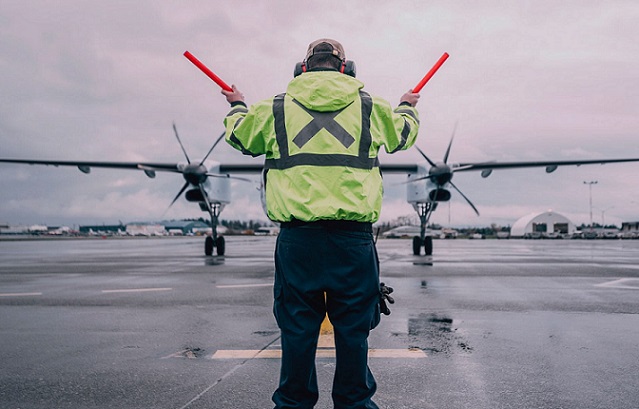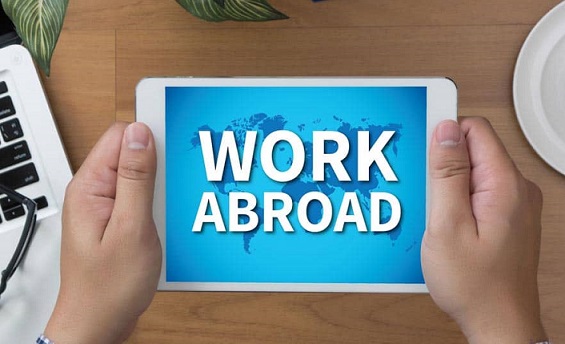Canada’s aviation industry is a dynamic and growing sector that offers a wide range of career opportunities for individuals with a passion for aviation.

For those seeking employment in Canada’s aviation sector, particularly with the added benefit of visa sponsorship, understanding the eligibility criteria, qualifications, salary expectations, and advantages associated with these positions is essential.
Eligibility Criteria
To be eligible for aviation jobs in Canada with visa sponsorship, candidates typically must meet certain criteria, including:
- Education: A minimum of a high school diploma or equivalent is often required. However, higher education in aviation-related fields such as aviation management, aeronautical engineering, or aviation technology may be preferred for certain positions.
- Work Experience: Relevant work experience in the aviation industry, such as pilot experience, aircraft maintenance, air traffic control, aviation administration, or airport operations, is highly valued.
- Language Proficiency: Proficiency in English or French is essential for effective communication in the Canadian aviation industry.
- Certification: Depending on the specific role, candidates may need to possess relevant certifications, licenses, or ratings from Transport Canada or other regulatory authorities. For example, pilots must hold a valid commercial pilot license (CPL) or airline transport pilot license (ATPL), while aircraft maintenance engineers require an aircraft maintenance engineer license (AME).
- Medical Fitness: Certain positions in the aviation industry, such as pilots and air traffic controllers, require candidates to meet specific medical standards set by Transport Canada to ensure they are physically and mentally fit to perform their duties safely.
Qualifications:
- Pilot: Pilots are responsible for safely operating aircraft and transporting passengers or cargo. Qualifications typically include holding a CPL or ATPL, along with specific ratings for the type of aircraft being operated.
- Aircraft Maintenance Engineer (AME): AMEs are responsible for inspecting, repairing, and maintaining aircraft to ensure they are airworthy. Qualifications include holding an AME license with endorsements for specific aircraft categories and types.
- Air Traffic Controller: Air traffic controllers are responsible for managing the safe and orderly flow of air traffic within controlled airspace. Qualifications include completing specialized training programs approved by Transport Canada and obtaining certification as an air traffic controller.
- Aviation Management/Administration: Positions in aviation management or administration may require a degree or diploma in aviation management, business administration, or a related field, along with relevant work experience in the aviation industry.
Salary:
Salaries for aviation jobs in Canada vary depending on factors such as the specific role, level of experience, and employer.
According to the Government of Canada’s Job Bank, the median annual wage for aircraft pilots and flight engineers in Canada is approximately $75,000 to $115,000, while aircraft maintenance engineers earn a median wage of $60,000 to $85,000 per year.
Air traffic controllers typically earn salaries ranging from $80,000 to $150,000 annually.
Advantages:
- Career Growth Opportunities: The Canadian aviation industry offers opportunities for career advancement and professional development, with various roles and specialties available.
- Visa Sponsorship: Visa sponsorship provided by employers allows qualified candidates from overseas to work legally in Canada, opening up employment opportunities for international applicants.
- Competitive Salaries: Aviation jobs in Canada often offer competitive salaries and benefits packages, making them attractive career options for individuals with the requisite skills and qualifications.
- Job Security: The demand for skilled aviation professionals remains strong in Canada, providing job security and stability within the industry.
How to Apply:
- Research Job Opportunities: Explore job listings on aviation industry websites, job boards, and company career pages to identify positions with visa sponsorship.
- Prepare Your Application: Tailor your resume and cover letter to highlight your relevant experience, qualifications, and interest in working in the Canadian aviation industry.
- Network: Connect with professionals in the Canadian aviation industry through networking events, online forums, and professional associations to learn about job opportunities and gain insights into the industry.
- Apply and Interview: Submit your application to prospective employers, ensuring to follow any specific instructions for submission. Prepare for interviews by researching the company, practicing common interview questions, and demonstrating your knowledge and enthusiasm for the aviation industry.
- Visa Application: If offered a job, work with your employer to obtain the necessary visa or work permit to legally work in Canada. Your employer may provide assistance with the visa application process and sponsorship requirements.
Conclusion:
Aviation jobs in Canada with visa sponsorship offer exciting opportunities for individuals looking to pursue careers in the aviation industry while relocating to Canada.
By understanding the eligibility criteria, qualifications, salary expectations, and advantages associated with these positions, aspiring aviation professionals can successfully navigate the application process and embark on rewarding careers in Canada’s thriving aviation sector.
Other Jobs Recommendation For You:





